Why a Retired Policeman Teaches This 3000-Year-Old Indian Martial Art Form for Free
Kerala's K V Muhammad Gurukkal has won several accolades as well as being nominated twice for the President’s award for preserving the art form Kalaripayattu.
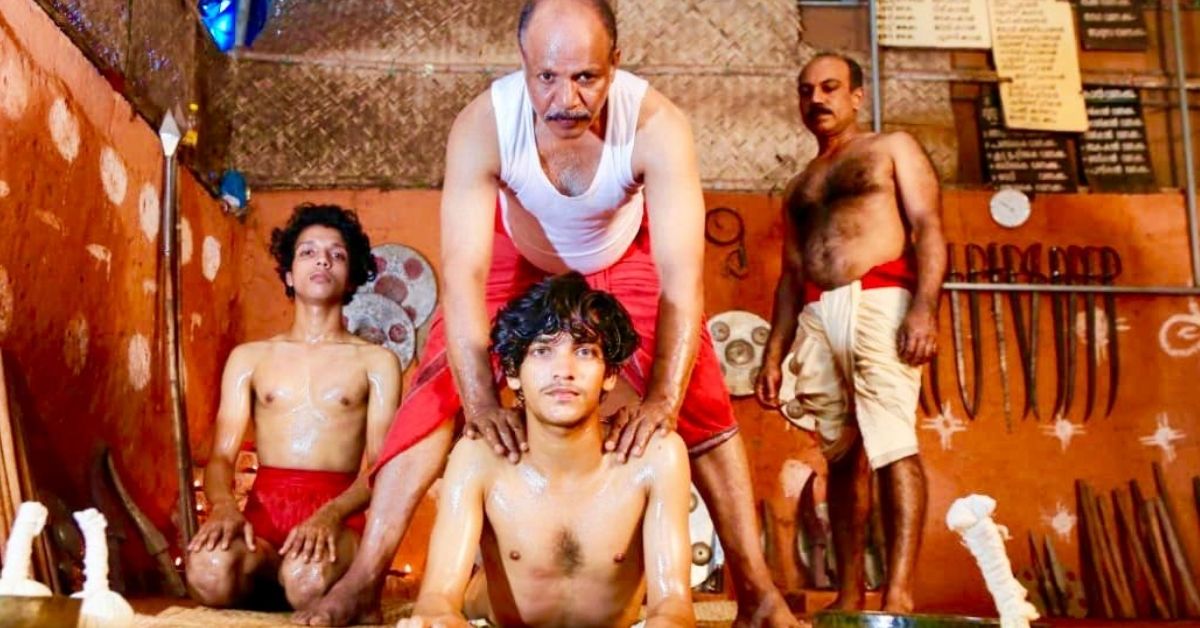
What started as a mere fascination for centuries-old martial art, Kalaripayattu has now turned into a mission for K V Muhammad Gurukkal. Based in Kerala’s Kozhikode district, Gurukkal has been training and helping hundreds of students for free.
Besides being an art form that is often associated with fighting, Gurukkal has been using Kalari to help people overcome issues like respiratory and body aches.
“Many people believe that Kalari involves battleground and weaponry, which is a misconception. This martial art form is very effective for developing mental and physical strength,” Gurukkal tells The Better India.
Gurukkal has been striving towards changing this conception and over the years he has had more than 2,000 students from various backgrounds such as dancing, karate and some simply learn Kalari to improve their physical health.
“I had back problems due to Karate. Two years ago I switched to martial arts at my family’s suggestion. Being Keralites, we knew about the benefits of Kalari. Sure, it is one of the most testing art forms but due to these very challenging steps, my back problem receded,” Ashfaq, one of his student’s shares.
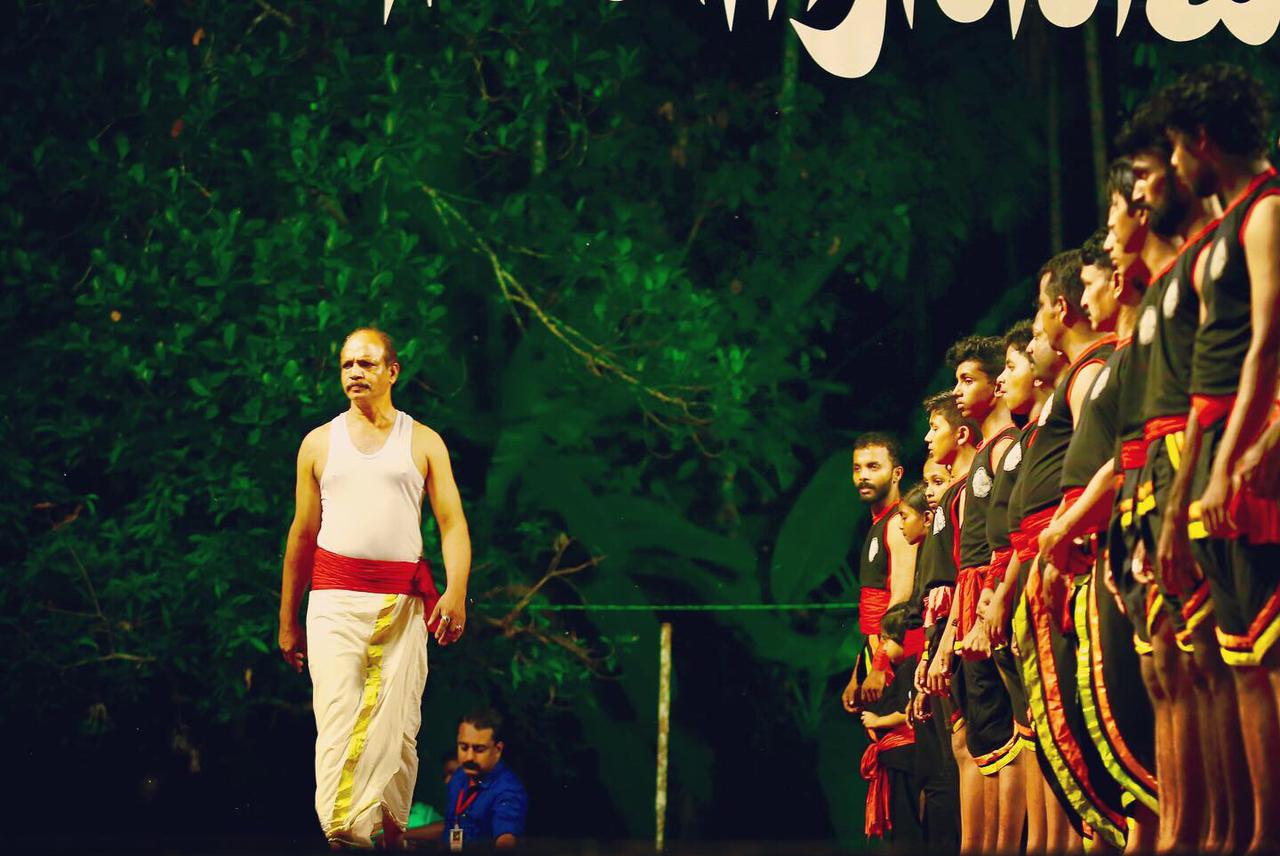
Gurukkal served in the Kerala police force for nearly 32 years alongside running his Kalari centre. The 58-year-old unfolds the lesser-known side of Kalari and the various benefits that this fierce art form entails.
Is Kalari For Everyone?
Despite hailing from a family that has been practising Kalari for several generations, it took Gurukkal three to four years to gain a stronghold.
“Kalari is not for people with low tolerance levels and focus issues. It requires immense patience, consistency and discipline to learn painstaking body movements and complex jumps. Fortunately, core and endurance can be built with practice so even the frailest looking person can nail Kalari,” says Gurukkal.
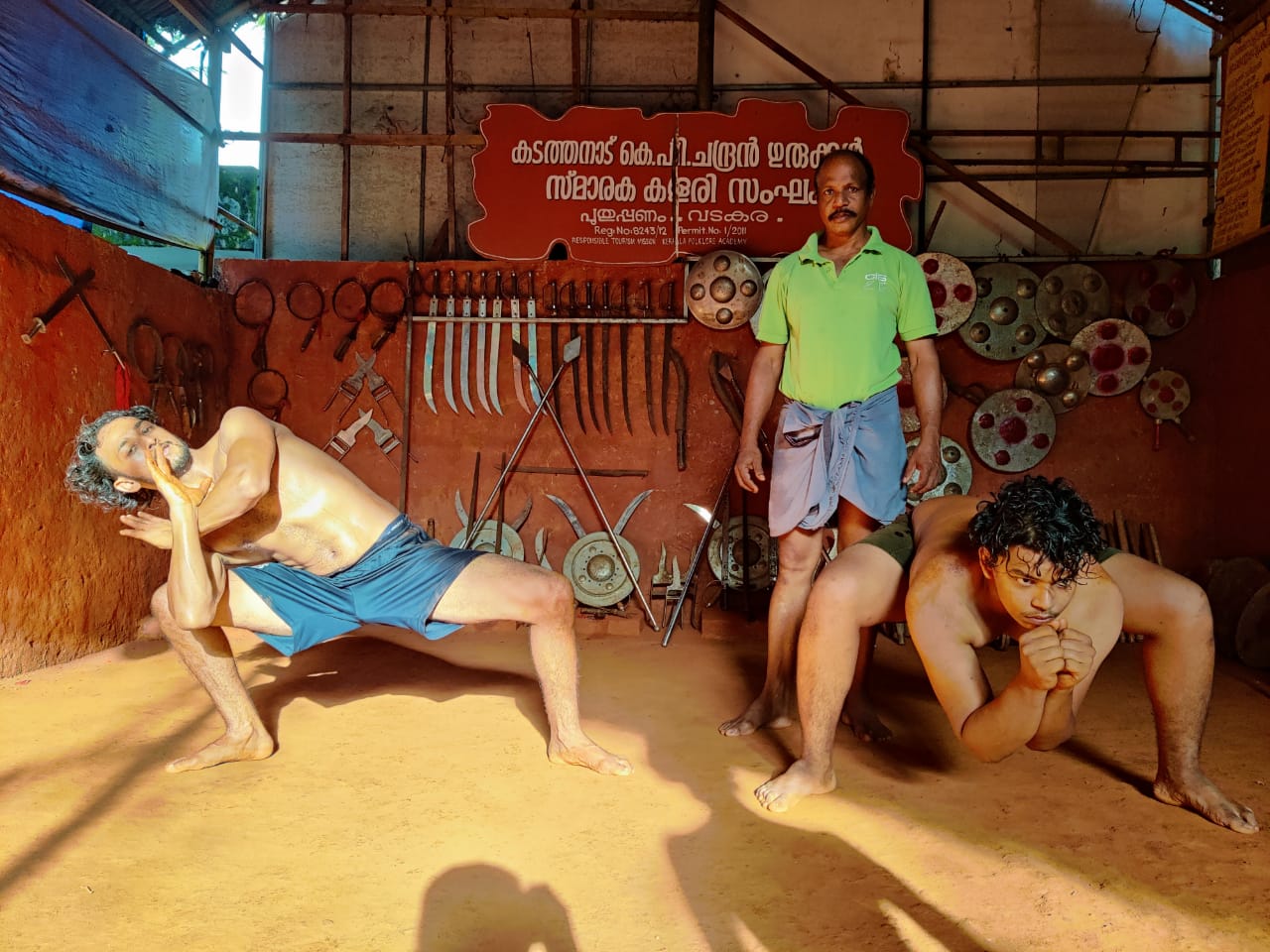
Kalaripayattu (‘Kalari’ means a place and ‘Payattu’ means action with arms) is divided into four levels, starting with body movements called ‘Meipayattu’. In the second stage, ‘Kolthari’ includes learning fighting techniques using sticks. The third stage, ‘Angathari’ is one notch higher with the inclusion of tools like Urmi, Vaal and Paricha. Finally in the last stage, ‘ Verum kai prayogam’, the students are taught to fight without weapons.
“If you observe the stages of Kalari, you will realise that the technique begins as a defence and slowly switches to the offensive side. Every part of the body learns how to protect and attack,” explains Gurukkal.
He further notes that Kalari is closely linked to Ayurveda massages called Marma therapy that helps in healing bones and joint pains.
Gurukkal suggests that people interested in learning the art form should start early when the body is more flexible. Presently, he has 30 students aged seven and the eldest one is in his 40s. His students also include two batches of soldiers from the Indian Army who he recently trained.
“I did not take up Kalari full time because I knew it was never a viable profession. While I earned by being in the police, I wanted to keep the tradition alive by teaching it for free. My training is a service to my nation and its rich heritage of multiple-diverse art forms,” says Gurukkal.
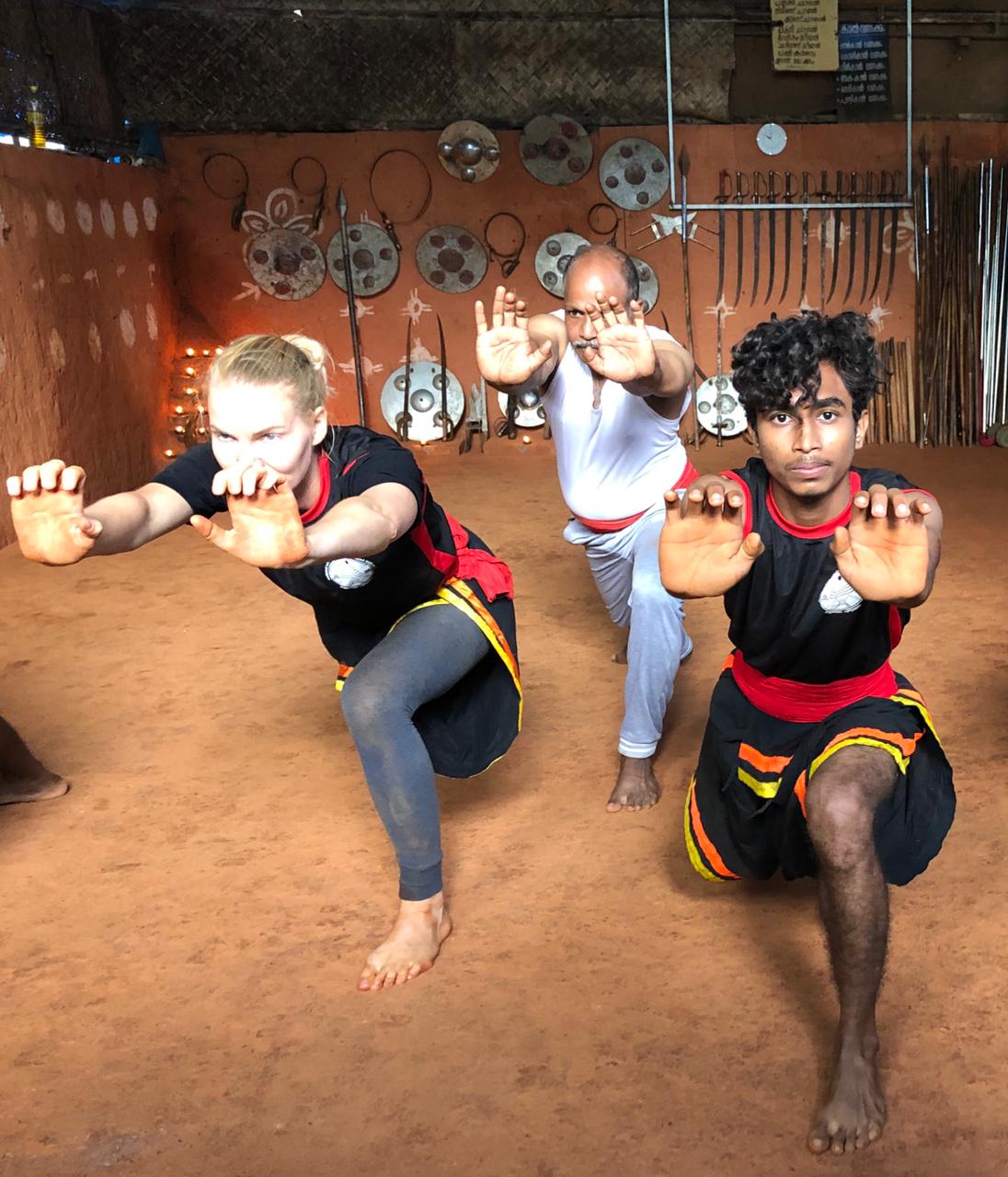
Besides teaching, he has actively worked towards promoting Kalari through public events. From festivals, social gatherings to dancing events, Gurukkal has been performing for years now. He has also performed at the Wagah border.
This has not only brought him accolades and recognitions but also drawn attention from people. Several of his students have learnt about his centre through this. Gurukkal has been nominated twice for President’s award by the Kerala police and received a badge of honour from his Director-General of Police.
Ashish, a professional Jazz and Contemporary dancer, was mesmerised by Gurukkal moves in an online performance last year. He travelled from Uttarakhand to Kerala to learn Kalari from Gurukkal.
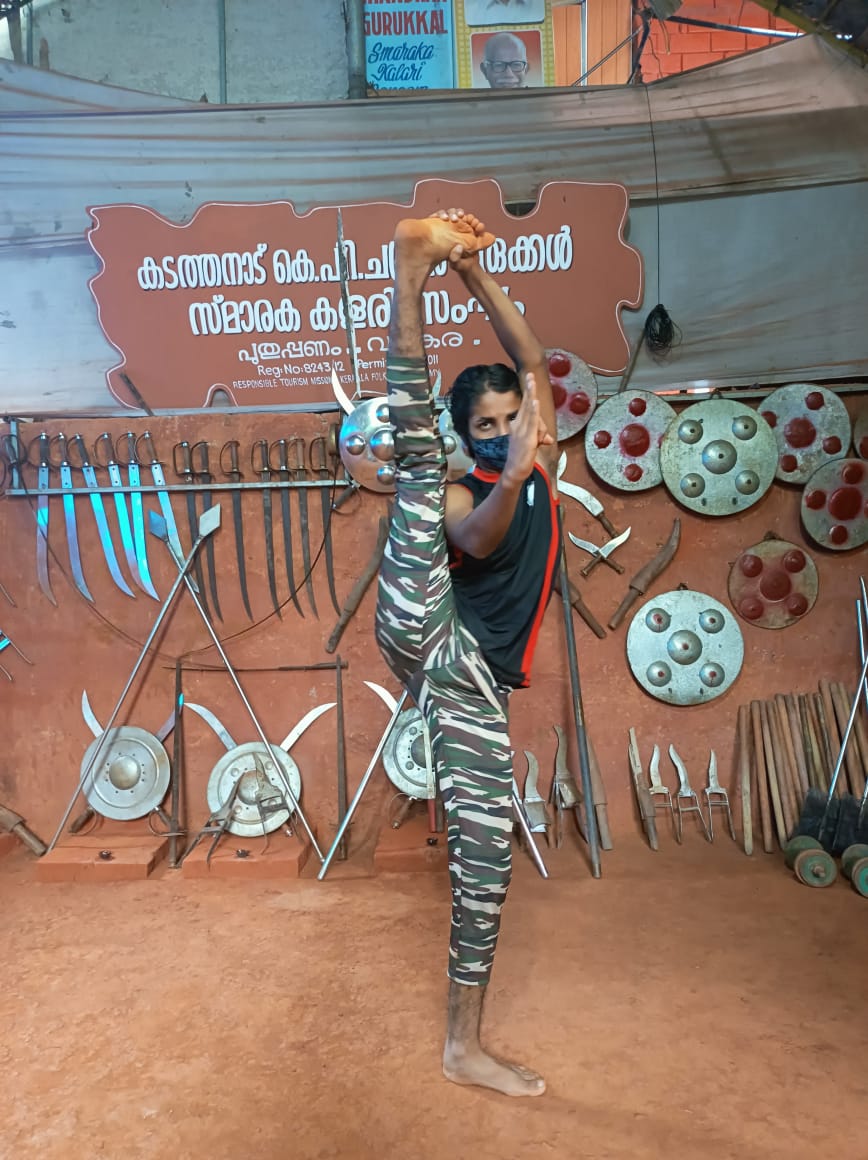
“I always wanted to inculcate body movements and steps of Kalari in my dance routine. I trained under Gurukkal sir for nearly two-and-a-half months. Since I am a dancer, it was fairly easy for me to learn the techniques. One day, I hope to train children in Kalari, as this is one form that needs to be conserved and celebrated,” Ashish concludes.
All images are sourced from Gurukkal
(Edited by Yoshita Rao)

Similar Story
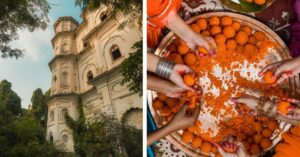
Beyond Bara Imambara: Heritage Photographer Captures Lucknow’s Hidden History
Maroof Umar loves a good story. Whether it is documenting the last calligraphy artist of Lucknow or finding home chefs who cook the best sheer khurma, here’s how he gives the city’s history a fun spin.
Read more >
If you found our stories insightful, informative, or even just enjoyable, we invite you to consider making a voluntary payment to support the work we do at The Better India. Your contribution helps us continue producing quality content that educates, inspires, and drives positive change.
Choose one of the payment options below for your contribution-
By paying for the stories you value, you directly contribute to sustaining our efforts focused on making a difference in the world. Together, let's ensure that impactful stories continue to be told and shared, enriching lives and communities alike.
Thank you for your support. Here are some frequently asked questions you might find helpful to know why you are contributing?


This story made me
-
97
-
121
-
89
-
167












